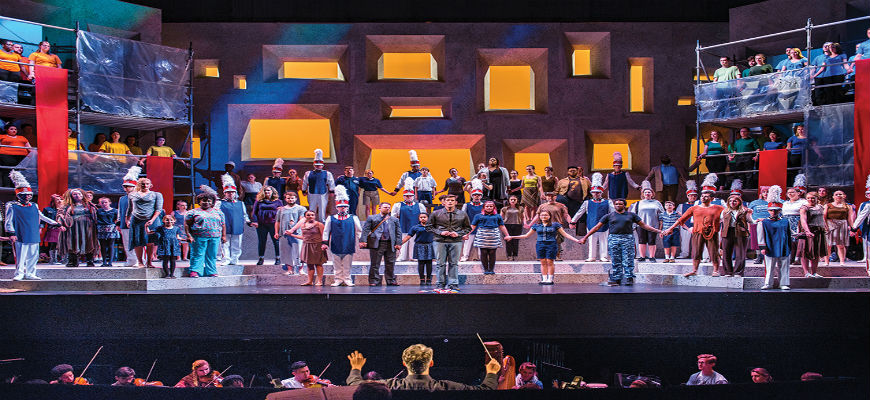
Dean Tayloe Harding Speaks of the Power of Music-Making
Posted on: October 17, 2018; Updated on: October 17, 2018
By Tayloe Harding
After experiencing a 1950s live performance of the works of John Cage, a music critic told the young composer, who was actually in the audience, that there was nothing special about Cage’s music, that the critic himself could have written “pieces like that.” Cage replied to the critic, “I didn’t say you couldn’t.”
Though I don’t reflect on this circumstance as often as I did when I too was a young composer, it has affected me over the years and led me to develop a keen sensitivity to the meaning of educating persons in music in our contemporary time. This meaning can be best be summed up, I believe, by this motto:
Everybody can do it. Music-making is for all.
Outstanding American schools of music, like ours here at the University of South Carolina, attempt to address this motto in a variety of ways. Most do so for two populations—one population aspiring to deliver musical excellence in performance, creation, presentation, teaching, and preservation and to be recognized at the highest level of quality in the discipline, and another population aspiring to pursue and capture musical excellence in ways that are most meaningful for themselves.
While the UofSC School of Music seeks to identify and laud the accomplishments of our best and brightest degree-seeking students, its mission also includes a deep commitment to this motto. Personally, what I love most about the UofSC School of Music is that we observe this motto by providing an enduring environment where the pursuit of excellence is paramount, where even as we expect that our future professional musicians achieve at elite levels, we also provide opportunities in music-making for all. We do so with a focus on and an insistence of the fact that music means most deeply when it is made with a desire to be excellent regardless of who is making it.
We manifest many examples of pursuing excellence in our musical work here at Carolina for both populations. As important to us as celebrating the achievements of our undergraduate and graduate students, our world-class faculty, and the students from the Southeastern Piano Festival remains, our commitment is to take joy in the attainments of musicians in the Carolina LifeSong Initiative, Congaree New Horizons Bands, the USC String Project, the Carolina Music Studios, the Children’s Music Development Center and a host of other community programs.
UofSC School of Music faculty regularly tell their students—and reinforce with each other too—how lucky we all are to have lives in music. Teaching, performing, breathing music, both for the enrichment of ourselves and for advancing its benefits to others is, after all, one of life’s most sacred and privileged callings. It remains critical for those of us in music in higher education who experience this joy and feel this responsibility to make sure that the professional musicians we are preparing for tomorrow know and feel this same centrality of music and understand their responsibility to act on behalf of music in their futures. Ensuring that the profound learning taking place when our students and stakeholders synthesize the cumulative power of achieving excellence in music at the highest level and the fulfillment of pursuing it just for the joy in doing so, is our greatest achievement as a school, and our most enduring legacy to our society and to music itself.
Share this Story! Let friends in your social network know what you are reading about